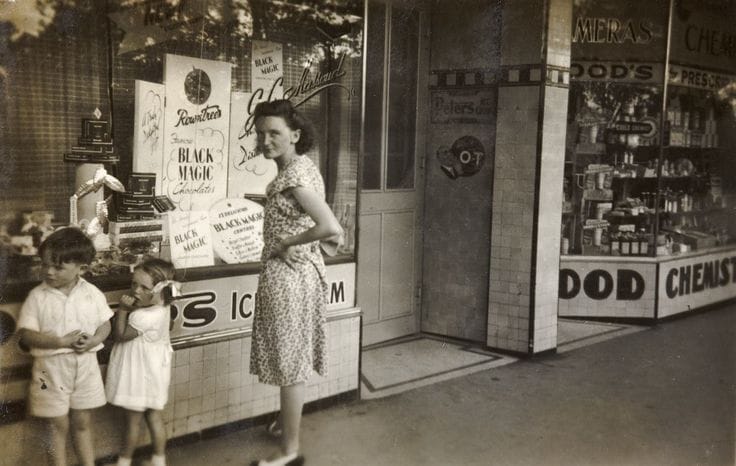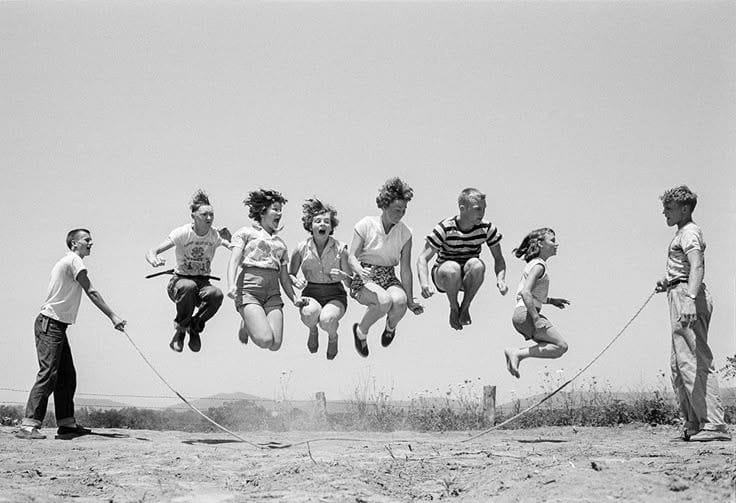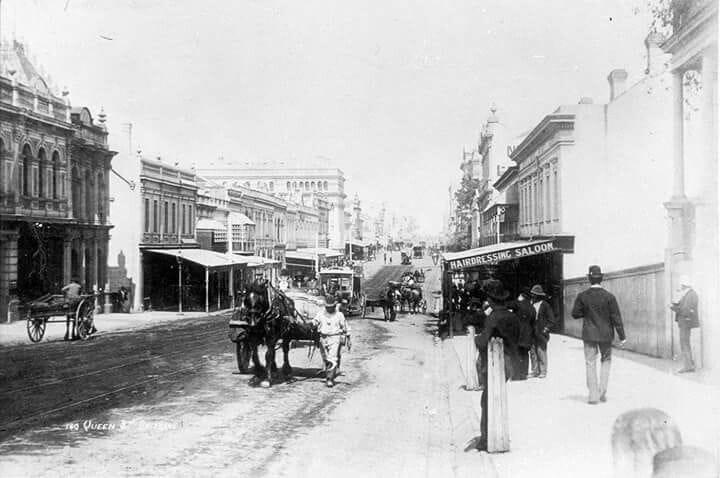“My life wasn’t that interesting,” Judy said, flipping through a shoebox of old photographs. “I just worked, raised the kids, kept house. Nothing worth writing about.”
Sound familiar?
I hear this all the time from Australians in their 60s, 70s, and 80s. They think their lives were too ordinary for a memoir. Too boring. Too much like everyone else’s.
They couldn’t be more wrong.

The Photo That Changed Everything
Last month, I was helping my friend sort through her mother’s belongings when we found a black and white photo tucked inside an old recipe book. It showed a young woman in a floral dress standing outside a corner shop, holding a baby.
“That’s Mum outside Thompson’s store,” she said. “We lived above it for three years when I was little.”
But it was what happened next that got me thinking.
Her teenage granddaughter picked up the photo and stared at it. “Nan lived above a shop? Like, actually lived there? Was that normal back then?”
What followed was an hour-long conversation about life in the 1950s. How families shared one bathroom. How the shopkeeper knew everyone’s name. How children played cricket in the street until dark without anyone worrying.
To my friend, these were just ordinary memories. To her granddaughter, they were glimpses into a completely different world.
What You Think Is Boring, They Find Fascinating
Here’s what I’ve learned from watching families discover old photos and stories: what seems mundane to you is often magical to them.
You remember milk bottles delivered to the doorstep as just how things were done. Your grandchildren can’t imagine a world without supermarkets and wonder how the milkman knew what you needed.
You recall walking to school alone at age six as perfectly normal. Your children, who drove their kids everywhere, shake their heads in amazement.
You think of your first job at the local bank or department store as just work. Your family sees a window into how different the working world was for your generation.
These aren’t boring details. They’re time capsules.
The Stories That Matter Most
The most treasured family stories are rarely about dramatic events. They’re about the everyday moments that reveal character, values, and the texture of life in a different era.
Like how your father walked five miles to work every day because owning a car wasn’t even a possibility. Not because he had to, but because that’s just what you did.
Or how your mother made Sunday roast every week for twenty years, setting the table with her good china even when money was tight. Because family dinner mattered.
Or how your whole street came together when the Hendersons’ house caught fire. No coordination needed. Everyone just knew what to do.
These stories explain who your family is and where your values came from. They’re the foundation of your family’s identity.
The Recipe Card Discovery
Sarah discovered this firsthand when she was cleaning out her grandmother’s kitchen. Tucked inside an old cookbook was a handwritten recipe card that read: “Depression Cake – No eggs, no butter, no milk. Still tastes like love.”
Below it, in different handwriting: “Made this every week during the war. Kids never knew we couldn’t afford proper cake. – Mum, 1943.”
That recipe card told Sarah more about her grandmother’s character than years of family stories ever had. It revealed resourcefulness, determination, and the lengths a mother would go to keep some normalcy for her children during the hardest of times.
Your family needs those moments of discovery too.
Why the Details Matter
Your children and grandchildren live in a world of smartphones, instant everything, and endless choices. They’ve never experienced:
- Waiting a week to see if your favourite show character survived the cliffhanger
- Having just three TV channels and family arguments over what to watch
- Walking to the corner shop with a handwritten list and exact change
- Knowing every family on your street and their business
- Making entertainment from cricket sets, skipping ropes, and imagination
These aren’t just nostalgic memories. They’re explanations for how your generation developed patience, resourcefulness, and strong community bonds.
They explain why you still write thank-you notes by hand. Why you never waste food. Why you know your neighbours’ names. Why you believe in doing things properly, even when nobody’s watching.
The Grandfather Clock Story
Tom thought his childhood was unremarkable until his son asked about the old grandfather clock in the hallway.
“That clock belonged to your great-grandfather,” Tom explained. “He bought it with his first month’s wages when he got the job at the railway. Mum wound it every Sunday night for forty years. We set all the house clocks by it.”
What seemed like a simple piece of furniture became a story about pride in work, family traditions, and how life revolved around routine and reliability rather than convenience.
His son had never thought about life before digital clocks and mobile phones. The story made him understand something fundamental about how his family approached time, commitment, and the importance of keeping things running properly.
The Questions They’re Too Polite to Ask
Your family wants to know about your life, but they don’t always know what questions to ask. They wonder:
- What was your wedding day really like? Not just the highlights, but the details.
- What worried you most when you were raising children?
- What did you dream about when you were young?
- How did you and Dad/Mum actually meet and fall in love?
- What was it like when money was tight?
- What made you laugh? What made you cry?
- What do you wish you’d done differently?
These aren’t boring questions. They’re the foundation of understanding where they came from and who shaped the person they became.
The Power of Context
Every family photo tells a bigger story when you provide the context.
That picture of you in your first car isn’t just about the car. It’s about saving for two years to afford it. About learning to drive from your father in empty paddocks. About the freedom of finally being able to visit friends without walking or catching the bus.
That photo of your wedding isn’t just about the ceremony. It’s about making your own dress because buying one wasn’t possible. About your father walking you down the aisle in his only good suit. About celebrating with a cake your aunt made and dancing to records in your parents’ front room.
The context transforms ordinary moments into windows to another world.
Starting Is Easier Than You Think
You don’t need to write like a professional author. You don’t need perfect grammar or fascinating adventures. You just need to tell the truth about your life in your own words.
Start with the photos. Pick one that brings back clear memories and write about what was happening that day. Who was there? What were you wearing? What was normal life like then?
Write like you’re talking to your grandchildren. Use the words you’d actually use. Tell them what they couldn’t possibly know about life in your era.
The Gift They Don’t Know They Want
Your family doesn’t realise what they’re missing because they don’t know what questions to ask. But once they start reading your stories, they’ll understand what a treasure you’ve given them.
They’ll finally understand why you always make extra food when people visit. Why you keep every birthday card. Why you remember everyone’s important dates. Why you believe in doing things properly.
They’ll see you not just as their parent or grandparent, but as a person who lived through extraordinary changes with grace, humour, and determination.
Your ‘boring’ life is actually an amazing story of adapting to change, building community, raising families, and creating the foundation for everything that came after.
The Time Is Now For Australian Stories
Those photos in your shoebox won’t explain themselves. Those memories in your head won’t preserve themselves. And your family’s questions about how life used to be won’t answer themselves.
Your story isn’t boring. It’s essential.
Every ordinary moment you lived through was actually extraordinary when seen through modern eyes. Every challenge you overcame shaped the strength your family inherited. Every joy you experienced created the love that surrounds them now.
Your children and grandchildren are waiting to discover who you really were before you became their parent or grandparent. They want to know about the young person with dreams, worries, adventures, and discoveries.
They want to understand how the world shaped you, so they can understand how you shaped them.
Ready to turn those treasured photos into treasured stories? Start your memoir journey today and give your family the gift they don’t know they’re waiting for. Start here!
Your memories aren’t just history – they’re the foundation of your family’s future. Begin preserving your Australian story today with our purpose-built memoir platform designed specifically for sharing life’s most meaningful moments.

